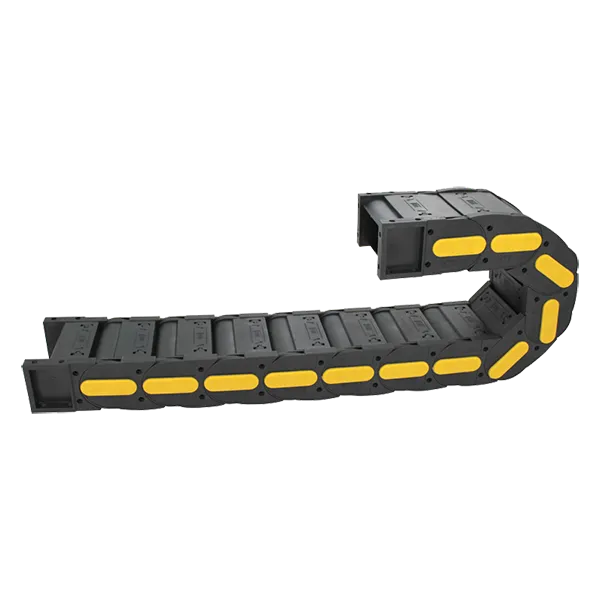nylon cable carrier
Understanding Nylon Cable Carriers A Comprehensive Guide
Nylon cable carriers, also known as cable tracks or drag chains, play a pivotal role in various industrial applications. They provide protection for cables and hoses while allowing for smooth movement as machinery operates. Made from high-quality nylon, these cable carriers are designed to withstand harsh conditions, making them an indispensable component in manufacturing and automation processes.
What are Nylon Cable Carriers?
Nylon cable carriers are flexible structures that guide and protect cables, wires, and hoses during movement. Typically formed as a series of interconnected links, they allow for bending and twisting, accommodating various machine movements. The use of nylon—as opposed to metal or other materials—offers several advantages, including lightweight construction, resistance to corrosion, and excellent wear characteristics.
Advantages of Nylon Cable Carriers
1. Lightweight Design One of the primary benefits of nylon over traditional metal carriers is its low weight. This added lightweight feature allows for easier installation and reduces the load on moving parts, thereby enhancing the efficiency of machinery.
2. Durability and Chemical Resistance Nylon is known for its mechanical strength and durability. It can resist various chemicals, oils, and lubricants, making it suitable for use in environments where such substances are present.
3. Flexibility The inherent flexibility of nylon allows for a range of configurations to accommodate different machine movements. Whether it’s for a linear motion system, robotic arm, or automated conveyor, nylon cable carriers can adapt to the required design.
4. Noise Reduction The material properties of nylon contribute to a quieter operation during movement. This is particularly important in environments where noise reduction is crucial for operator comfort and safety.
5. Cost-Effectiveness The overall cost-effectiveness of nylon cable carriers makes them appealing for various industries. The longevity and reduced maintenance costs associated with these carriers ensure that investments yield substantial returns.
nylon cable carrier

Applications of Nylon Cable Carriers
Nylon cable carriers are versatile and are used across numerous industries, including
- Manufacturing In manufacturing environments, they protect wiring for machines that undergo constant motion, such as robotic arms, CNC machines, and conveyor systems.
- Automotive In automotive assembly lines, cable carriers ensure that electrical cables and hoses are properly managed, enabling a seamless operation.
- Electronics In the electronics sector, these carriers safeguard fragile wiring associated with devices, helping to prevent wear and tear over time.
- Material Handling Nylon cable carriers are used in cranes and hoists to manage power and control cables, making them essential for equipment that lifts and moves heavy loads.
Choosing the Right Nylon Cable Carrier
When selecting a nylon cable carrier for a specific application, several factors must be considered. The length, width, and bend radius of the carrier are critical to ensuring proper functionality. Additionally, the maximum load capacity should align with the weight and type of cables being used. Proper installation is also vital to maximize the lifespan and efficiency of the cable carrier.
Conclusion
In conclusion, nylon cable carriers are an essential component in modern engineering and manufacturing applications. Their lightweight nature, durability, flexibility, and cost-effectiveness make them a preferred choice over traditional metal carriers. Understanding their features and applications can assist engineers and designers in making informed decisions when integrating these invaluable tools into their systems. As industries continue to evolve, the use of nylon cable carriers will undoubtedly expand, contributing to more efficient and safer operating environments.








